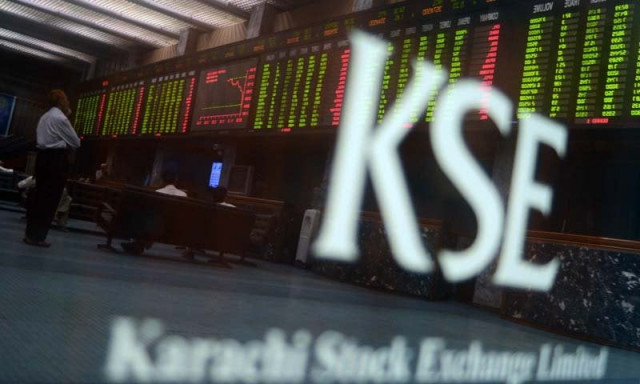Stocks hold no appeal to common man
Equity investment in the US a household affair, a no-go zone in Pakistan.

Equity investment in the US a household affair, a no-go zone in Pakistan. PHOTO: AFP
The average income in Pakistan is $1,207 (approximately Rs10,000 per month), while an average Joe earns $52,800 (approximately Rs4.5 lakh per month).
When it comes to investing, the majority of Pakistanis think of gold, real estate and occasionally foreign currencies as investments. Some investors who are slightly more sophisticated may think of government bonds. Only a few dare to put their money in stocks.
Historically, the stock market has never been attractive for household investors in Pakistan due to high interest rates and apparent stability available in the money market. However, stock investment in the US is a very common household affair. This is like a referendum showing faith of small investors in equity markets.
Pakistan’s equity market is known to be played only by rich or institutional investors and a layman is entirely indifferent. A weak and politicised SECP commensurate with conflict of interest of individuals in corporate board of directors, also holding executive management positions, cannot serve the interests of shareholders at large.
However, it is undeniable by the statistics that the Karachi Stock Exchange is one of the best performing stock markets in the world.
KSE performance
In 2014, KSE returns surged by 27% (USD based +33%) and closed at an exorbitant level of 32,131. This is the third consecutive year of double-digit return by the KSE. Steady corporate earnings, subsiding macroeconomic risks, drop in oil prices, stable external account, heavy foreign flows and better domestic liquidity have all been the factors.
Interestingly, during the last 10 years, when mostly a swarm of negatives played in, equities exhibited an astounding 20% return in terms of US dollars.
KSE’s stellar performance during the year seemed unimpressed by exogenous shocks that would normally derail financial markets anywhere else in the world – bomb blasts, plane crashes, political sit-ins, Zarb-e-Azb, Musharraf’s contempt case, Peshawar incident, all having a naught weight on the bourse.
KSE today ranks as the third best performing world market after China (+48%) and Venezuela (+41%). This is a big leap considering the market ranked 18th in 2011, 8th in 2012 and 11th in 2013. But the question remains, is this datum succouring the common public.
Household investors
Household investors directly own about 40% of the outstanding equities in the US and hold an additional 20% of outstanding equities through mutual funds.
From the Federal Reserve’s latest release, it is revealed that in the second quarter household and non-profit’s stock holdings rose from 34.2% to 35% of their total financial assets. This is the highest percentage since 2000.
In fact, the blow-off phase from 1998 to 2000 leading up to the dotcom bubble burst was the only time in the history that saw higher stock investment than now. It would not be wrong to state that stocks have been, and still are, the most preferred investment instruments for an average US household even after the two cyclical bear markets in the past dozen years.
In contrast, if an average Pakistani does not belong to the clan of Ghaffar bhai (memons) or Mian Saab (chiniotis), and is deprived of the local thug support, he is very much likely to conceive stock investment as a mindless dissipation of wealth.
Out of a population of 188 million, we only have 50,726 CDC investor accounts (April 30, 2014 source: CDC website). The number of investors in the market determined by the Universal Identification Numbers (UIN) at the end of December 2014 stood at 230,000. This means that fruits of a stock boom are shared by just 230,000 people.
It is extremely important both to improve household consumer protection and to fulfill broader economic development objectives in order to drive investments and strengthen capital markets to ensure efficient distribution of capital.
The barriers to Pakistani stock markets such as high transactional costs, lack of commitment products and most importantly low levels of financial education must be addressed by the authorities in order to boost the investment stimulus to achieve desired economic goals.
The writer is an alumnus of Manchester Business School (MBS) and currently working as a money market dealer
Published in The Express Tribune, January 26th, 2015.
Like Business on Facebook, follow @TribuneBiz on Twitter to stay informed and join in the conversation.



















COMMENTS
Comments are moderated and generally will be posted if they are on-topic and not abusive.
For more information, please see our Comments FAQ